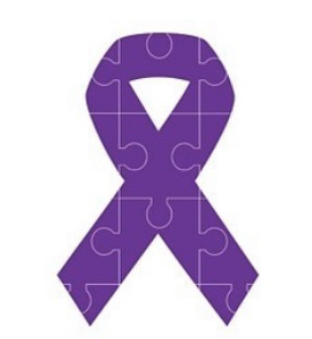My school was really understanding, even though they didn’t know what Crohn’s was.
I don’t really remember my autism diagnosis, but I remember that leading up to my Crohn’s diagnosis I lost a lot of weight and didn’t know why.
The weight loss went on gradually and eventually I wasn’t eating because, when I did, I was in pain. I questioned my self and my family. “Why is this happening?”. My automatic thought was “is it a sickness bug?”. It developed to a burning acid feeling in my stomach and I was using a hot water bottle to ease the pain. This is when I went to a GP and she referred me to a consultant.
I was diagnosed just after my birthday in 2017 but it wasn’t easy. My parents had to fight to get me an appointment when we needed it and I was in so much pain that I couldn’t imagine waiting any longer for an appointment. The consultant then said I may have needed surgery if we’d waited any longer.
Being at school was not an ideal time to get diagnosed with something I’d never heard of before.
When I explain my condition, which I’ve had to more during the pandemic, people say they’ve heard of it more often than they used to. It saves having to explain what it is, which is not easy. It feels like more people are understanding it because famous people are talking about it, like Dynamo, Amy Dowden, and Sacha Dhawan.
I really like Sacha because I like Doctor Who and I find it inspirational that he plays the Master while living with Crohn’s. It took him a while to speak out too but the more people that do, the more others will feel comfortable doing that too. I’m really grateful to him.

When it comes to my autism, I was misunderstood at my mainstream school.
I wasn’t at a point where I could explain or ask for help at that time but I did get better at explaining myself. For example, I especially struggled to put a tie on after gym class and teachers wouldn’t help or understand why this was difficult for me. Autism means I can take things to heart, and it led to a lot of anxiety of not being able to wear a tie when I was meant to.
After the mainstream school I went to one where they understood autism and lots of other things that students might live with. This is the school I was at for my Crohn’s diagnosis, and I think that explains why they were so understanding and helpful. They were used to dealing with different needs and medical conditions.
This school really helped my confidence grow. I went to their college and then I was confident enough to attend a mainstream institute, in a class for people with different needs. For me, autism means I don’t like being in enclosed spaces or being too near to other people so online classes suit me in more ways than one. I’m about to start at a training centre which will be virtual at first, and I’ll start going in as I get more comfortable.
Both of my conditions are invisible.
As I’ve gained more confidence I’m happy speaking to people and telling people when I need more support. Recently, speaking to others in similar positions has also really helpful but I couldn’t always do this because of my autism.
For example, I’m about to have my first procedure since diagnosis, and I’ve been speaking to strangers that have had it done before. This wouldn’t have been possible in the past so it would have been much harder.
Seeing a new doctor or someone I’m not aware of can still be hard. When I was younger I would just stand there, and I wasn’t being rude but just didn’t know how to act.
I still avoid eye contact and noisy environments like hospitals can be really difficult.
I had an MRI which was a new experience with lots of noises, but I wore headphones. Afterwards they said I stayed very still which is what I was meant to do so I was pleased with that!
 As I’ve had to go to hospital more and more, for blood tests, I have gotten more used to it. I like to have people that I know doing my blood tests and infusions so I ask for this and they do that if they can. I do get quite anxious and sometimes there might be an extra person there watching, like a trainee, which I feel a bit uncomfortable with but it’s okay.
As I’ve had to go to hospital more and more, for blood tests, I have gotten more used to it. I like to have people that I know doing my blood tests and infusions so I ask for this and they do that if they can. I do get quite anxious and sometimes there might be an extra person there watching, like a trainee, which I feel a bit uncomfortable with but it’s okay.
I used to only speak about it when I needed to, but this changed last year. I decided to create a podcast raising awareness for Crohn’s and autism.
I’m really proud of the logo which represents both communities.
I shared my story and I ask people to come on and talk to me. I’ve had people with Crohn’s or Colitis, people who work in IBD and people who live with autism. It really helped me throughout the pandemic, and I connected with people in Australia, America, all different places.
It can be visible if we make it.

